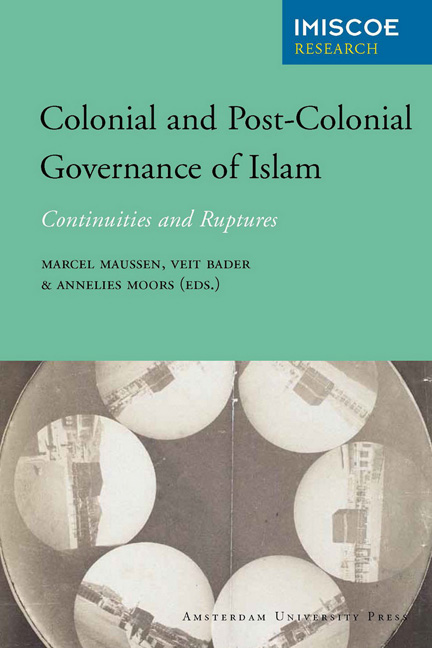8 - Seeing Like an Expert, Failing Like a State? Interpreting the Fate of a Satellite Town in Early Post-Colonial Pakistan
Published online by Cambridge University Press: 05 February 2021
Summary
Introduction
This chapter presents the story of Korangi, a late-i95os new town just outside Karachi, with the aim to better understand the relationship between the Pakistani state and its Muslim population. This story has never been told in any detail before, largely because substantial information has remained locked away in dysfunctional or inaccessible archives.2 Nevertheless, and without giving too much away, the larger narrative can be condensed in a way that makes it immediately familiar to anybody interested in post-colonial development projects: an ambitious but highly insecure military regime decides to sort out the mess created by its civilian predecessors. With the help of foreign funding and foreign expertise, it decides to put into place a vast public housing initiative - an entire satellite town for up to half a million people. It all looks great on paper and is also quickly translated into concrete reality. But as soon as the new residents begin to impose their own unforeseeably complex needs and requirements, and as international funding dries up, the project Tails’ as spectacularly as it was pulled off in the first place.
As it turns out, the story of Korangi is far from an open and closed case for what James C. Scott and others have so influentially analysed as the inherent fallacy of grandly conceived ‘mega’ projects (Escobar 1995; Mitchell 2002; Scott 1998). In fact, as this chapter seeks to demonstrate, it requires an almost opposite interpretation: things went ‘wrong’ not because states ‘see’ and then act in a way that necessarily collides with a much more complex local reality, but things go ‘wrong’ because some post-colonial states are not nearly as ambitious as the progenitors of great plans; in fact, within the scope of their much more limited structural needs, there is not even sufficient ground to speak of failure at all.
While engaging with this larger problematic, this chapter also touches upon several themes that stand at the heart of this volume. Through ordering space in a particular way, Korangi was, at least potentially, a tool of governance. More specifically, the project involved questions about what provisions a state should make to maintain ‘authentic’ Muslim community life.
- Type
- Chapter
- Information
- Colonial and Post-Colonial Governance of IslamContinuities and Ruptures, pp. 155 - 174Publisher: Amsterdam University PressPrint publication year: 2012



